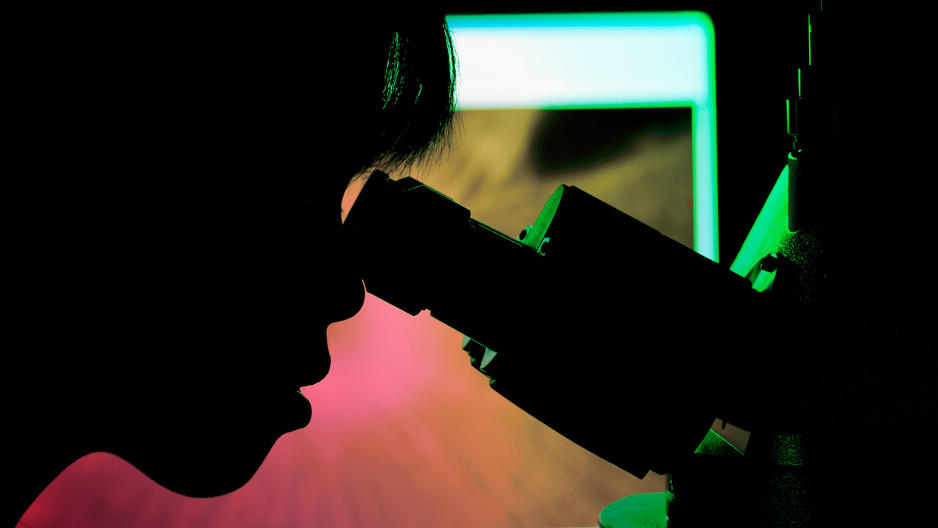It’s Time To Start Conducting More Scientific Job Interviews
This story reflects the views of this author, but not necessarily the editorial position of Fast Company.
However the hiring process may be changing, there’s no sign job interviews are going away from it. It’s still almost unthinkable to land a job offer without going through some form of interview, whether in person or remotely. But anybody who’s been on a handful of them knows how much one job interview can differ from the next—despite the plethora of advice about the best questions for hiring managers to ask and which cues to look for.
As a result, some job interviews are much more effective than others at sorting out whether a given candidate is the right fit. After all, while humans in general are fairly good judges of one another’s character, plenty aren’t but still think that they are.
There are ways to control for this variability, but that means turning the interview process into more of a science than an art. Still, there may be some serious upsides to doing that. Here are a few of them, and what it might take to do it.
Giving The Job Interview A Clinical Makeover
What would a more scientifically rigorous interview process look like? Researchers have devised psychometric tests that aim to standardize and measure the types personality features that many of us—including interviewers—just try to guess at subjectively.
A more “accurate” interview might be less pleasant to experience, but it would likely need to be more structured—even to the point of resembling a multiple-choice questionnaire. It would also need to be longer than most sit-downs with job candidates tend to be, progressing through a sequence of carefully selected questions that are coherently linked to the role in question, and previously shown to evoke answers that actually reveal candidates’ potential.
And as in any good psychological study, there would always need to be multiple interviewers present. The same interviewers would need to assess all candidates, though, and use standardized scorecards to evaluate them afterward. Very few interviewers in the real world probably set up these sorts of parameters, and it’s understandable why—imagine the resources and training it would take to turn an entire HR department into a team of clinical researchers.
But the alternative means regularly making deeply subjective, inherently biased, and often painfully misjudged hiring decisions, no doubt contributing to turnover rates that are truly staggering.
At a minimum, it doesn’t hurt to start small and weed out some of the most glaringly ineffective interviewing practices. Designing more scientifically accurate interviews would require technical expertise and clinical experience, but curbing these three common mistakes definitely doesn’t.
1. Cut The Chitchat
Although it’s useful to break the ice and build some rapport with the candidate, small talk should really be kept to a minimum, ideally to two minutes or less. That may sound stern, dispassionate, and inhuman to some; companies often like to use the interview experience to let loose, show off their culture, and see what kind of chemistry emerges organically. And that’s fine, but it almost certainly won’t lead to making consistently high-quality hiring choices.
Small talk invariably evokes a range of biases, focusing interviewers’ attention on totally irrelevant behaviors. If interviewers want to indulge in it, they’ll need to treat that banter the way reporters treat off-the-record conversations—something that’s completely irrelevant and not to be included in the analysis of the candidate.
What’s more, chitchat can actually give the wrong impression to the candidate, who regards it as part of their performance and over-interprets a hiring manager’s behavior while chatting as either positive or negative feedback—even if the interview hasn’t even commenced. To be sure, it’s is impossible to control the impressions candidates make on interviewers and vice versa. But establishing a clear starting point to the interview and focusing only on the actual interview questions is every capable interviewer’s main task.
2. Stop Improvising
When job candidates and interviewers actually enjoy the interview experience, it’s usually because of the (relatively) natural personal interaction—at least compared with tests, simulations, or application forms that the hiring process often involves. But make no mistake: There’s nothing natural or authentic about a job interview.
Candidates who approach them as a spontaneous and natural encounter, thinking they can “just be themselves” (common career advice), are likely to fail. It’s of course important to appear authentic, but the most successful candidates, researchers have found, tend to put on a carefully rehearsed performance and prepare as much as a classical pianist.
Why not expect the same level of preparation from interviewers themselves? No matter how much they enjoy the sociable component of the interview, this is an exam for them, too. It may sound harsh, but if hiring managers are really committed to combatting their own biases and making fairer, more accurate judgments about candidates’ characters and competencies, they need to stop improvising. Every psychological researcher knows how important it is to follow a carefully designed script control their own emotional affect as much as possible. Without deliberately providing a standardized environment to all candidates, you’re already being unfair.
3. Don’t Attempt Psychoanalysis
We all make automatic inferences about others’ personalities even after a few seconds of interacting with them, but most of these inferences are wrong. To make matters worse, people are generally unable to evaluate the accuracy of their inferences, so we often end up feeling sure about what someone is like even when we’re totally off base.
Some simple tricks, like aggregating impressions from multiple evaluators (five or more) can no doubt enhance the accuracy of our inferences, but even that would be less valid and more time-consuming than scientific personality assessments (unless the raters already know the person they’re describing well).
At any rate, rather than trying to psychoanalyze candidates, you should focus on a factual and data-driven evaluation of their skills, knowledge, and experience. While the job interview can be used to complement other insights gathered through personality assessments, it’s best approached as a means for obtaining job-related information, rather than vetting character. Keep in mind that narcissists and psychopaths tend to perform very well during interviews (and first dates), but scientific psychometric tests can spot these individuals.
Some of this also helps explain why computer-driven evaluations of candidates, as extracted from digital interviews, show such promise. Machines can inject as much structure as needed into unstructured data (like a 45-minute conversation) and capture millions of data points, which can then be analyzed—not by intuition, stereotypes, or prejudices, but actual evidence.
While it’s impossible even for the most open-minded human beings to ignore (or avoid making assumptions about) signs of candidates’ socio-demographic categories (age, gender, nationality, ethnicity, social class, etc.), computers can be trained to disregard these and any other data. And while algorithms are only as unbiased as the people who write them, they could—at least in theory—prove far more consistently objective than human beings.
There will be some major hurdles for technology to overleap before that happens, of course, which means the typical job interview isn’t likely to change dramatically anytime soon. But that’s all the more reason why a few of the most ineffective human habits really need to go—sooner rather than later.
Fast Company , Read Full Story
(22)














